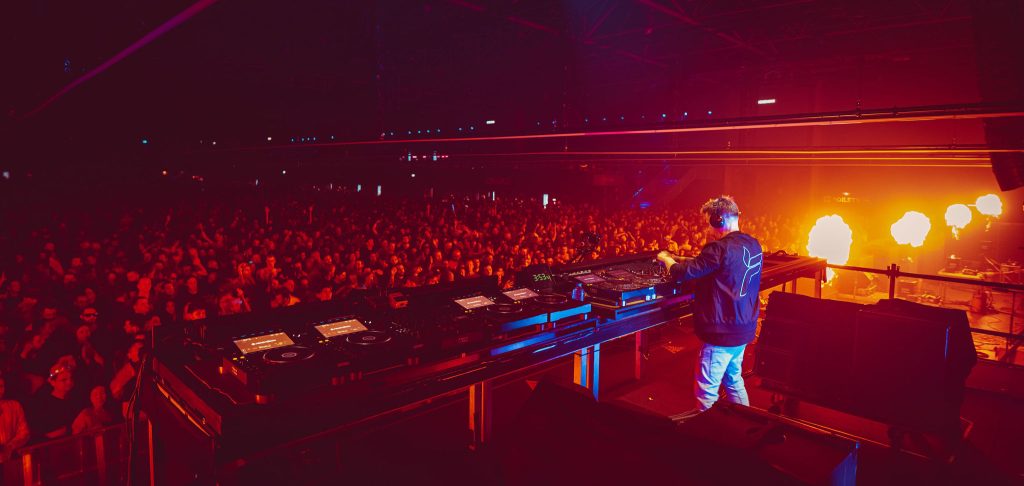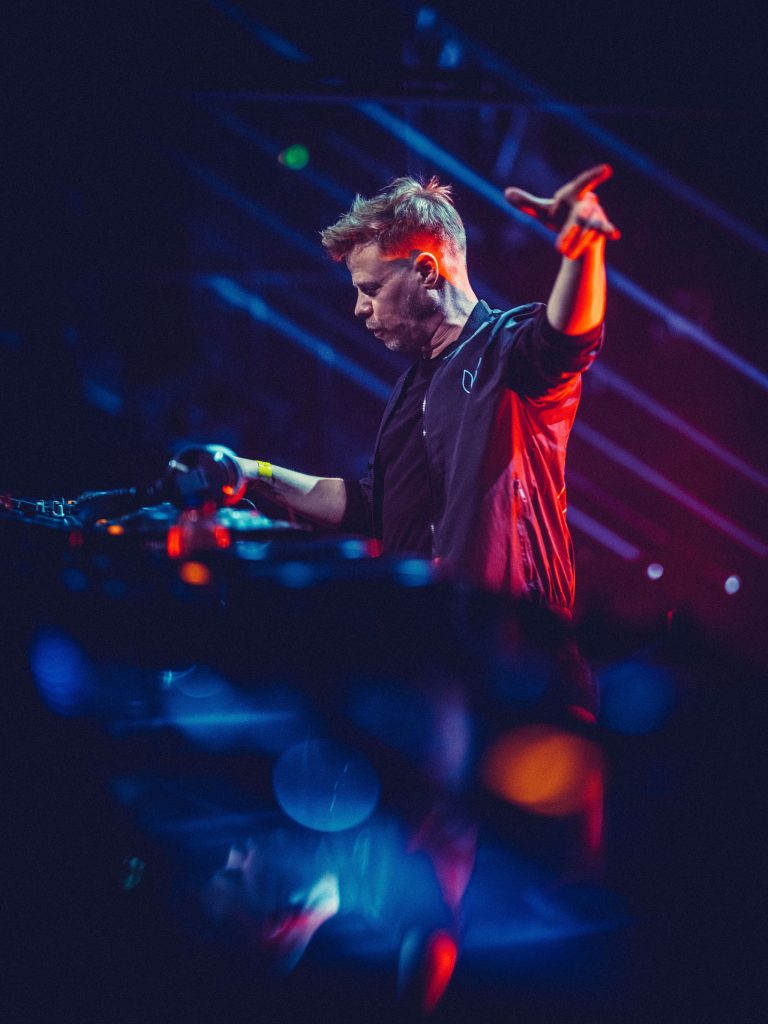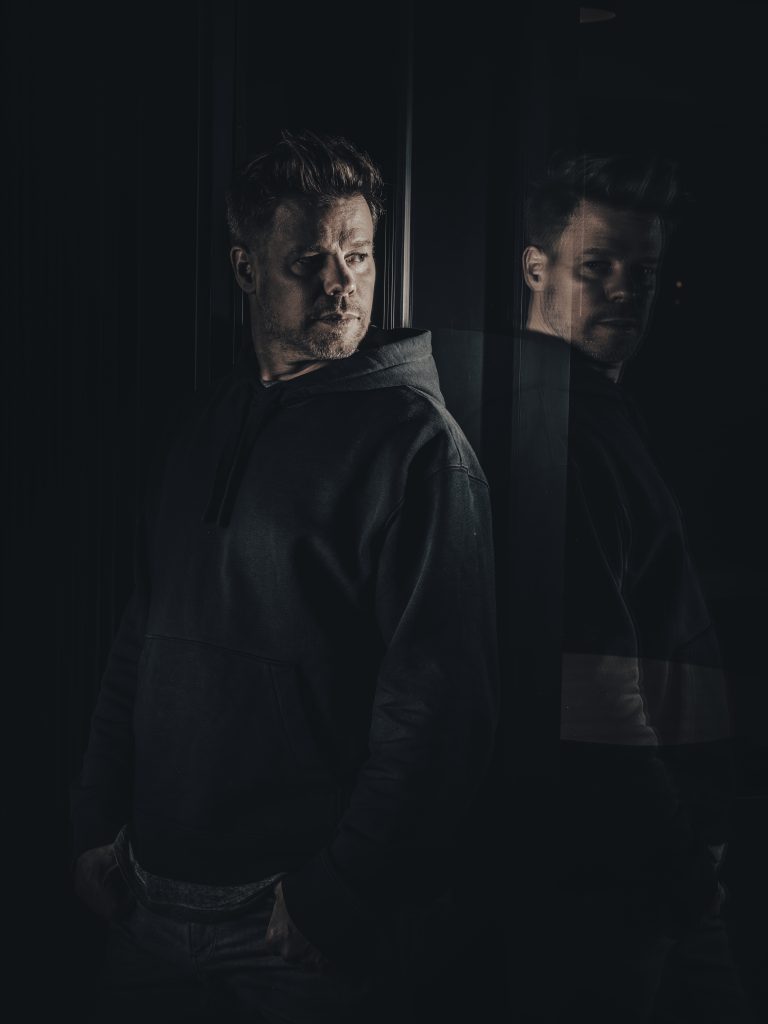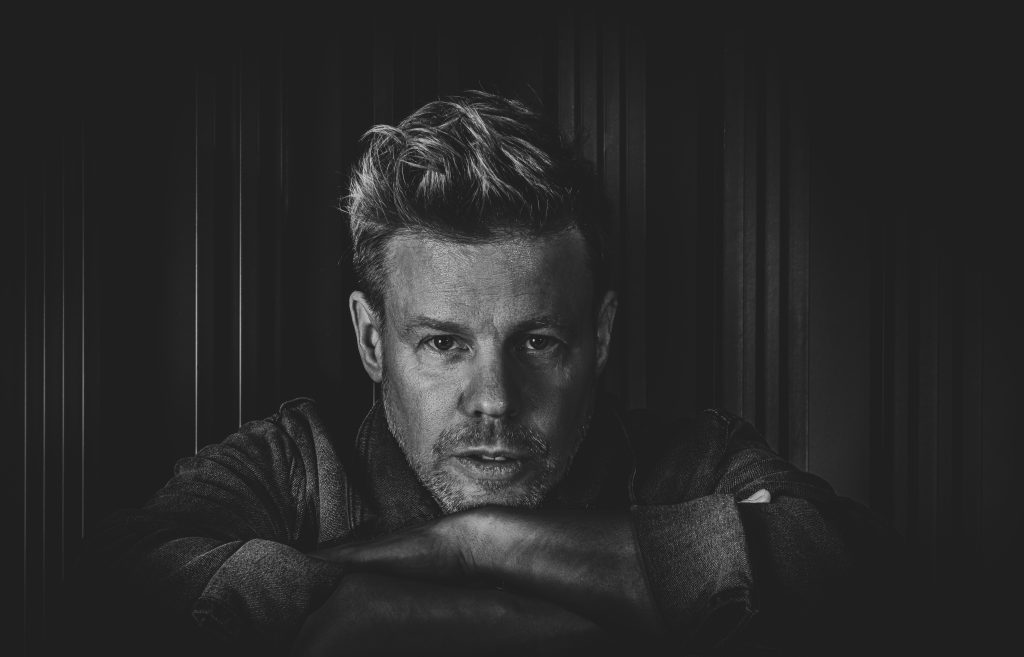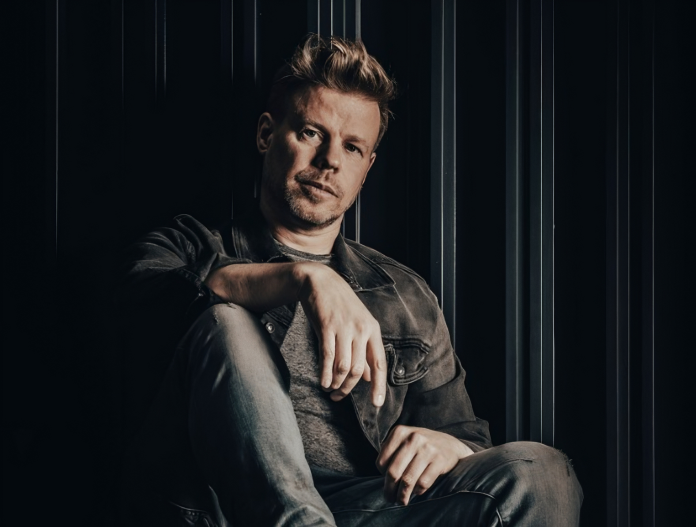
We recently had the pleasure of welcoming a living legend for a friendly, in-depth chat.
In a world in which we’ve sort of left behind the meaningful conversations and replaced them with colder messages, it’s always refreshing to sit down and listen to what others have to say. We’re glad to say we’ve had one of those special moments with no other than Ferry Corsten.
As one of the trailblazers of the Trance genre as we know it, Ferry has been involved in the scene for a long handful of years, more than 25 in fact. On his way to releasing his sixth artist studio album, Connect, he’s bringing back an old friend of every Trance fan: the old, pre-00s sound. But wait, there’s more: Ferry is pushing a modern, tighter, surgically-revamped version of that older sound. “A what“, I hear you say? Read on.
We had the opportunity to have a chat with him, and so we decided to have a sort of philosophical conversation and ask him about things that span far beyond the typical interview. Have a read below!
The Interview
(Please note, the bolded text represents a question, while the paragraph(s) following it represent Corsten’s answers.)
So firstly, you recently turned 50. So happy late birthday now that I can say it personally to you. Now, if you came across the Ferry from, say, 30, 35 years ago, when you just started making some beats. Is there any piece of advice you would want to tell him?
I think I would tell my early self, my younger self, that I should start releasing music under my name from the start, and not all the different aliases I’ve done for quite a number of years, so then the focus would have been on me as an artist straight away instead of, “Oh, Ferry’s also System F, he’s also Gouryella, he’s also this and he’s also that… Oh, I never knew that”. Then all those tracks would have been Ferry.
So that’s the one thing. But I guess the reason why that all happened was just a product of the time. The way the world worked with releasing a lot of music. No one label could handle all that music. And the difference now with then is that, now, labels sort of allow you to go with your certain name that you’re producing with to other labels. But back in the day, you signed a clause where you dedicated an alias exclusively to a given label. So you had to come up with another name to go somewhere else.
On that same note, you are the mind behind various tracks, whose melodies are really emotional, deep, and they stick around for years, even decades. We’re talking ‘Out Of The Blue’, ‘Anahera’ ‘Carte Blanche’, ‘Valhalla’, among others. So talking about that thing, looking back, and to the present as well. What’s your approach to making music? What’s your process when you sit in the studio and just decide to start a song from scratch?
Well, all my music in general is always very melody-driven, right? That’s what I have my soft spot for. I mean, yeah, from time to time, I like to make a banging Techno track, or something a bit more bragging, straightforward, not so much melody, but usually I just gravitate to the big emotional things, the vibes. So that’s the first thing I’m looking for when I’m in the studio. That’s the hook, the face of my track in a way. And then once I have that, the melody and the bassline that needs to go with it, the rest will follow: the chords, and then all the drum layers and effects, and then the fine-tuning and all the crazy little ear candy stuff. But it’s the melody first. That’s the same method that I’ve always used.
‘Punk’ is a really good example. When I went clubbing and I wasn’t the DJ, back then all of us were playing on vinyl. And all DJs had stickers on their vinyls, just a white sticker so others couldn’t tell what they were playing. That’s what they did to keep their tracks exclusive. So the next day, I’m going to a record store and I know that this DJ was playing this and that track last night. But, how am I going to tell the guy behind the counter what records I’m looking for if I can’t really sing the melody, or there’s no lyrics to it? So I thought, “The melody needs to be very recognisable and very easy to sing”. So my hopes with ‘Punk’ were that, if I went to the guy at the record store, and that song was out, that guy would definitely know what I’m talking about. That’s my sort of approach that I still do today.
You’ve produced an impressive amount of tracks across a large number of genres. Have you ever feared people won’t approve of the direction you’re taking when you’re stepping into a new genre?
Of course, there’s always that fear. But that’s a question to oneself, as an artist, should you be the shepherd, or should you be the sheep? I mean, I feel that I need to do stuff that I like too. If I make music just to please my fans, because that’s what they want to hear, I’ll get really bored and tired at some point. And, I don’t think that’s beneficial to anyone. I think if I just make the tracks that might be a bit challenging, let’s say, for the diehard Trance fans or whatever, you know, then we’ll find out. Talking about ‘Punk’ again, it was one of those tracks, right? When that came out, after all the Gouryellas, after all the System F stuff, the big Trance stuff, and one year I come with this Electro-sounding track. The first reaction was really like, “What are you doing?”. But after months of other DJs playing it as well, it just changed everything. So I don’t think you should be too afraid of making that mistake. It’s still a trial and error in the end. You also have to do what feels right for you when you’re in the studio. What excites you. Sometimes it’s a gamble that you have to take.
Talking about new things and trying out new stuff, let’s talk a bit about this “new” sound you’ve been pushing lately under your Ferry Corsten alias. How did it come to be? When, and why, did you say to yourself, “Hey, let’s bring the Old-School Trance sound back, let’s shine this back into the spotlight“?
Well, it’s also the scene that is doing that a bit, which allows me to do it again. If you listen to cross-genres, you’ll hear so many 90s influences right now. And, you know, it’s really funny, for the longest time the standard 909 kick drum wasn’t cool, and the hi-hats and the snare drums. You know, the 909 drum rack, it was not done. And it was Old School. And now it’s cool again, so it can be done again. And with that comes all the other good bits from the 90s, but produced with today’s technology, so it sounds super tight and big. There’s a bit of sentiment in there as well, you know, “Can I? Can I really open the drawer of Ferry stuff from the late 90s, early 2000s?”, which is really cool. So, yeah, I’m really enjoying that.
That sort of older sound coming back, what’s one thing or quality you’d say that sets it apart from the rest of the Dance tunes we’re currently listening to on the scene, what makes that sound so unique?
I think it’s the simplicity. I realised that when I made ‘Anahera’. Shortly after that, I decided to do a show concept with Gouryella. But for that, I had to re-produce, in a way, all the old tracks, because if I put the first Gouryella track next to ‘Anahera’, sonically, they wouldn’t really match. Gouryella – Gouryella would sound really old. So by re-producing it, still with the same samples and the same drum kits and all of that, just running it through today’s technology, it sounded much tighter, and it now matched with ‘Anahera’. But to get there, basically, I had to analyse what young Ferry had done 20, 25 years ago, and I realised, there was nothing really in those tracks. It was just so empty. But it all served a purpose, everything added space. And I was really using the space, filling it with delays and stuff. But the actual notes played? They were super simple. That was one of those things that hit me. I couldn’t believe it was that simple.
All this music you’ve been putting out recently, you know, ‘Yes Man’, ‘Stay Awake’, will be part of an album, Connect, is it?
Yeah, Connect.
So what’s your goal with the album? Your tenth album* by the way, that’s impressive. Do you want to kind of lure new listeners into the scene? Do you want to please the current fanbase? What are your intentions with Connect?
–*Connect will be Ferry’s sixth studio album under the Ferry Corsten name, but the tenth album he’s ever crafted under all of his current and past aliases.*-
It’s both, to connect the old with the new and the new with the old, and show my connection to the world with my love for different genres. Although people see me as a Trance guy, I love House, I love Techno, every genre that has the word “melodic” in front of it — that is all of a sudden really cool but it’s all the same thing. I’ve always been very diverse. And so, the “connecting” theme of the album is really an umbrella, a bridge that connects the Ferry of today with the Ferry from back in the day. And from another point of view, the album has the bonus of pleasing older fans who have been longing for that old Ferry sound for a long time, and also newer fans who come because of the rest of the scene having that type of sound now, while at the same time feeding my own excitement with a more Housey side here and a more Tech-ey side there. Connect is very diverse. Which I always like about an album. It’s your opportunity as an artist to show what you’re made of. Twelve tracks of exactly the same genre is, well, after track number three, you’ve already listened to the entire album. A good album has to get you ready for a journey from start to finish.
Not long ago, you played a set along with other Armada DJs on one of the control towers of Schiphol Airport in Amsterdam. Amazing set by the way. This concept of bringing the whole DJing thing outside of the clubs and festivals and instead being held with basically no attendees, and giving more protagonism to the location and the drone takes and stuff. Do you enjoy that? Do you believe it has the potential to become a whole new way of playing DJ sets?
Yeah, I think so. I mean, a big moment for that stuff to appear and become something was through Corona, right? Where are all we could do was to be in front of a green screen, or in some remote location. It’s still weird – you’re just playing for the two or three guys with you in the studio. And then to your imaginary friends out there in the world that are watching you. This is basically the same thing. In the Schiphol tower we had just eight or nine people, of which four were crew. You go in there with the mindset of like, “Okay, I’m not playing for a foreign audience, but at the same time there is a very big audience because everyone’s going to watch this”. But still, it’s not the feeling of the crowd that you have at a festival. You come in a bit more prepared. But, yeah, playing over there [AMS Airport], or anywhere in a beautiful place and surrounded by nature, it’s just really cool.
Do you think Trance is kind of being mislabelled currently, or even being lost to the whole Melodic Techno phenomenon?
Yeah, I think it is. I don’t know what to say really, Trance is Trance. And, for some reason, it has become such a dirty word that no one likes to pronounce, but let’s just call it what it is really. All the melodic stuff out there right now that revolves around emotional moments, that’s what Trance was, and is, that’s how it all started. If people would rather call it Melodic this or that, it’s all cool. But in essence, it’s just another Trance record. I say that respectfully.
I’ve said it before. A long time ago, when Trance became sort of like, not the cool word anymore, but everyone was using elements, even in the EDM days, Swedish House Mafia stuff, listen to those tracks, they’re full-on Trance records but with a House groove. And so I said, “You know what, if no one wants to do Trance as a genre anymore, then we can still acknowledge it as sort of like the tastemaker, the salt and pepper on the table for other genres, because everyone is using the Trance spices. I can see why in many ways Trance has gone there, by mislabelling. I think Beatport is a big, big player in that. All of a sudden trying to attract tracks that had nothing to do with Trance, and were just cheese and rubbish, they labelled them under Trance.
The genre’s also got stuck on the same patterns for years. You can hear it is all the same, no progress. Back when Trance was really big, you know, ‘99 all the way up to, say, 2005, there was so much adventure, and people were making different, distinct tracks. Now, for example with the radioshows (Resonation Radio, A State Of Trance), when we do the selection for the episodes, we get so many tracks that all sound the same. I have a word for it. It’s called “Template Trance”.
And I can stand by it.
Yeah, because you know, it’s all Splice, loops, and whatever MIDI packs and… Wow, guys, just put on your adventure hat and go out there into the wild, do something different. I can see where the whole uncool thing comes from. But I also think Trance doesn’t get the respect that it should have.
Here’s an opinion. There’s more competition now, and maybe less creativity, music-wise. The markets, labels, social media, all seem to reward those who can follow an already ongoing trend, rather than making something that breaks the mould. Do you feel that way about Dance these days?
Yeah, to a certain degree I do. I think a lot of the music has become analytics, and not music anymore. A certain algorithm reacts on a certain way to certain tracks that follow certain, you know, sound or structure or this or that. But at the same time, you also see there’s the other side, right? I mean, real creativity and people that really come up with something new that stands out on its own, so much so, they surface right away. I think of Fred again.., he proved that last year and this one too. He has those super original takes on music. And so, what that says is, music that does not follow the same rules all the time, there’s a place in the Industry for it for sure.
About the Trance sound you’re trying to bring back through the album, do you wish to move this trend over to Flashover to kind of push the releases of older-sounding tracks?
If it happens. With the label, we’ve never really asked the artists “Can you make this or that”, because I feel like they should be happy with what they’re working on and what they’re presenting to us. Yet at the same time, if we release stuff like that, yeah, of course, I hope they will feel like “This is cool”, and really inspires them to just dip their feet in it as well.
Are there any artists you have in mind that could perhaps, follow your steps in exploring the Old-School vibe? I’m thinking Nick [Chicane], for example, or Armin himself. What are your thoughts on the matter?
Armin definitely has a sweet spot for that. Chicane also has that sound. Who else… I know M.I.K.E. Push is pretty happy in Technoland right now. But if he brought his own M.I.K.E. sound back, he would change the scene with that sound. Steve Helstrip (The Thrillseekers) was another one. And from some of the new guys, you see people like Ben Hemsley, for example. Also swimming in that same sort of water and trying to have that Old-School sound in his music, which is cool. I mean, you see it already happening. But I’d like to see some of the old guys that have gone away from that sound, go back there again as well. See what they would bring back.
How easy or difficult is it to mix the Old-School sound in a modern-day set? I’m referring especially to the low end, since it’s kind of more forgiving, less oomphy, if that makes sense.
It’s a task. You know, today’s sound is super tight, and warm and big. And when you put on a track right after that, 20-plus years old, you hear it instantly. The difference is sonic already, but also, it’s not nearly as tight as tracks are today. So you hear kicks not lined up, sort of phasing, they’re not dead on. But yeah, you just have to know that, and be comfortable with it, knowing that you’re mixing an old track. It is going to sound older. Even though you can do some processing on Ableton or whatever to help make it sound a little tighter, in the end, you just have to accept that it’s an older-day track.
If you had to give a piece of advice to new producers, newcomers, young people, whatever. What would your words be for them?
Follow your real passion. We’ve talked about how Trance is not cool, but let’s say you love it, and all your buddies around you are like, “Not cool, you should make this or that”. But if you don’t feel this or that, it takes you a lot longer to get good at it. So just really start with what you like. And then once you have that, sort of nailed, you can venture out and see what else is happening.
Another question I get quite often is “How can I get my music, my arrangement, to sound like a proper record?”. I think it’s just, take your favourite track, one that you really love, and use it as a guide to try and imitate it completely. Then once you’re done, strip the reference track out and start changing the melodies and swapping things around a little. But now you get to keep that energy, and you have the structure of the track.
Thank you. One little thing before we end. How’s your schedule for the coming weeks? Where can people catch you playing around the world for the first quarter, two quarters of 2024?
Well, I just took two weekends I’m off, which is nice. Then I did Shanghai on the 30th, and New Year’s Eve at Zouk in Singapore. If people go to my website, ferrycorsten.com/tour, they’ll find the details. Note I left the first weeks of January open because I really want to work on the album.
(End of the interview)
Final Words
What can we say… other than a huge thank you to Ferry for taking the time and the kindness to open up to such a degree. We’re certainly waiting for the album to come out and having that old, savoury Trance sound back in our arms. In the meantime, though, you can listen to the first tracks lifted from Connect. Refer to this article right here. And stay tuned to our page for the latest news and views of our beloved industry.



